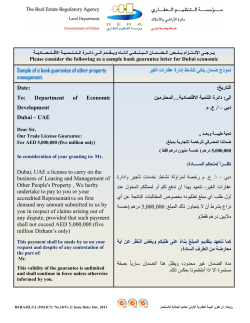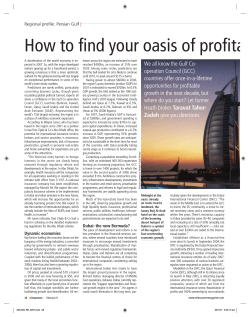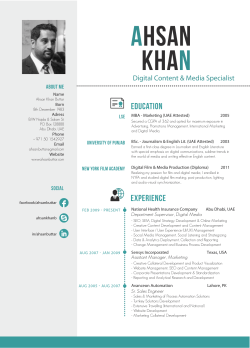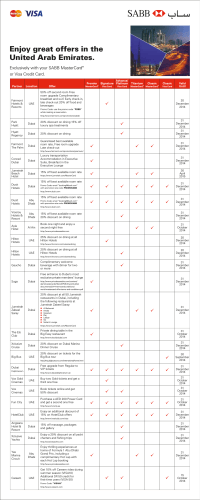
China central bank in $6bn currency swap deal with Qatar
Gulf Daily News Tuesday, 4th November 2014 19 China central bank in $6bn currency swap deal with Qatar DUBAI: China’s central bank has signed a 35 billion yuan ($5.7bn) currency swap deal with its Qatari counterpart, in a step towards expanding use of the Chinese yuan in a region long dominated by the US dollar. The deal is expected to allow the two central banks to swap currencies if needed to ease trade and investment. Qatari investment institutions will now also get the right to invest up to 30bn yuan in mainland Chinese securities, including stocks, bonds and bills, the People’s Bank of China said in a statement yesterday. The investment scheme, known as the Renminbi Qualified Foreign Institutional Investor, was created in 2011 to let financial investors place some of their yuan holdings in China. The UAE signed a three-year currency swap arrangement with China in 2012 that was similar in size to Qatar’s. Bankers say they believe there has been little if any use of it in practice, but it is a step towards long-term change. Beijing has been promoting its currency to international investors, aiming eventually to turn the “redback” into a global reserve currency in line with the country’s rising political and economic power. Gulf countries have lagged many other parts of Asia in using the yuan because their energy exports to China are mainly denominated in dollars and most of their currencies are pegged to the dollar. HSBC estimated last year that while 10 per cent of China’s international trade was conducted in yuan, the share was under 4pc for Chinese trade with the UAE. The huge foreign reserves of the Gulf states are mostly kept in dollars. However, economists believe there is room for that pattern to shift slowly in coming years as Gulf states gradually orient a greater share of their trade towards Asia. Qatar, which has some $43bn in net foreign currency reserves and an estimated $170bn in its sovereign wealth fund, is the biggest supplier of liquefied natural gas to China. Saudi regulator probing Mobily earnings revision DUBAI: Saudi Arabia’s market regulator has begun an investigation to determine whether Mobily violated bourse rules, it said yesterday, after the company restated 18 months of earnings and reported a 71 per cent drop in third-quarter net profit. Mobily had been expected to report its third-quarter earnings last week, but asked for its shares to be suspended on Thursday, seeking more time to review unspecified “significant matters” in its financial statements. “The regulator has started investigations to determine any violations by the company towards the bourse rules,” a statement from the Capital Market Authority (CMA) said. Yesterday, Mobily reported a shock profit drop as well as re-stating its earnings, cutting its 2013 profit by 740 million riyals ($197.3m) and profit for the first-half of 2014 by 688m riyals due to what it said were accounting errors. Trading in Mobily’s shares will resume today, the CMA statement added. Meanwhile, Saudi Arabia is due in a few months to open its stock market to direct foreign investment. A survey of a dozen international fund managers early this year found Saudi Arabia ranked highest among the five main Middle Eastern exchanges for full and accurate disclosure of corporate information, and second highest for enforcement of rules against illicit trade. “This may be a temporary glitch as $1.8bn provision hits HSBC profit LONDON: HSBC’s profits fell short of expectations in the third quarter after the bank set aside $1.8 billion for misconduct settlements and compensation for customers, including a potential fine for rigging currency markets. The provision and a jump in HSBC’s everyday compliance costs show the impact of regulators’ increasing efforts to clamp down on bad behaviour in the global banking industry that contributed to the financial crisis. HSBC said yesterday it had spent $700 million more this year on compliance and risk than a year ago, and that level of expense looked set to stay, meaning it would miss one of its main cost targets. “The cost base of a global bank like ourselves is higher than it was before, because ... it includes a significantly higher compliance and regulatory cost than historically the banks had invested in,” chief executive Stuart Gulliver said. “It reflects the fact that standards, foreign policy, etc, all evolve in a world that is a lot less certain than it was 10, 15 years ago.” HSBC’s third-quarter underlying earnings fell 12 per cent from a year ago to $4.4bn, after operating expenses jumped 15pc on the year. That included a $378m provision for the forex investigation, $589m to compensate British customers who were mis-sold insurance products and a $550m settlement in the US for mis-selling mortgage-backed securities. Gulliver said the bank was likely to miss a target set out 18 months ago to get costs down to about 55pc of revenues by 2016. He said it was more likely to be in the high 50s or near 60pc. It was 62.5pc so far this year. The bank also said it had been summoned to appear before French magistrates over whether its Swiss private bank had helped French citizens to evade tax, and could face a criminal investigation. HSBC said its forex investigation provision covered “detailed” talks with Britain’s financial regulator about alleged manipulation in the $5.3 trillion-a-day forex market. The talks were in relation to systems and controls in one part of its spot forex business in London, it said. Mobily has actively engaged analysts and the investor community in the past,” said Asim Bukhtiar, head of research at Riyad Capital. “It might take a couple of quarters to shake off this mis-step and the company may need to do some damage control. Foreign investor sentiment may be affected depending on the root cause for restatement and emergence of more details on the quarterly results.” Mobily, also called Etihad Etisalat, and 28pc owned by the UAE’s Etisalat, had reported surging profit after it ended Saudi Telecom Company’s (STC) monopoly in 2005. A record annual profit last year – now amended to be below that of 2012 – helped Mobily’s shares reach an eight-year high of 98.25 riyals in May, but investors became jittery last week after the company failed to report its third-quarter earnings. Its shares fell 8pc in three days to a 16-month low of 79.95 riyals before the company asked for trading to be halted. Analysts polled had on average forecast Mobily, which competes with STC and Zain Saudi, would make a quarterly profit of 1.67 billion riyals. Mobily said the profit drop was because its third-quarter earnings in 2013 were boosted by non-recurring wholesale revenue that was not repeated in the same period of 2014. Also, depreciation, sales, marketing and general expenses rose yearon-year. These included extra provisions of 207m riyals for bad debts, slow-moving inventory and goodwill impairments on its investments. Mobily restated its 2013 net profit as 5.94bn riyals, down from 6.68bn riyals previously, due to an error in the timing of booking revenue from a promotional campaign. This mistake also required Mobily to restate its net profits for the first two quarters of 2014. It raised its first-quarter profit to 1.61bn riyals from 1.4bn riyals previously, but “Excuse me, but is this the canteen or office?” second-quarter profit fell to 412m riyals from 1.31bn riyals “Mobily has given some indication as what is going on, but we’re still trying to figure out why the company has DUBAI: Vodafone Qatar, an affiliate of Vodafone Group, reported a changed its accounting standnarrowing second-quarter loss yesterday, as revenue increased. ards mid-year, normally any Vodafone, which ended state-controlled Ooredoo’s domestic changes are flagged up well monopoly in 2009, made a net loss of 53.5 million riyals ($14.69m) in in advance of the start of the the three months to September 30, according to Reuters calculations year,” said Bukhtiar. based on company statements. Bukhtiar said Mobily had That compares with a loss of 75m riyals in the prior-year period. hired third-party wholesalers The operator’s financial year starts on April 1. to distribute its mobile topQuarterly revenue was 559m riyals, up from 465.25m riyals a year up cards and would book the ago, according to Reuters calculations. revenue from these cards on Vodafone Qatar – 23 per cent owned by parent Vodafone and 22pc delivery to the wholesaler even by a Qatar government-linked fund – made a loss of 80.96m riyals in though these had not necesthe six months to September 30, according to a company statement sarily yet been bought by cusyesterday. That compares with a loss of 159.88m riyals in the pri- tomers. or-year period. The CMA said in July it In October, Vodafone Qatar said it had agreed to buy Qatar would open the kingdom’s National Broadband Network, which began rolling out a fibre net- market, the biggest in the Arab work across all of the country in 2012 and expects to complete con- world, in the first half of 2015, struction within three years. sparking a stock surge. Firm’s loss narrows Daman plans Dubai listing next year DUBAI: Daman Investments, a UAE investment management firm, said yesterday it planned to list on the Dubai Financial Market during the first quarter of 2015 to expand its business and fund new opportunities at home and the wider region. The company is the latest in the UAE to announce plans to go public, joining a wave of firms eyeing a stock market listing after a long fallow period for flotations. Dubai-based Daman will sell new shares equivalent to 55 per cent of the firm to the public. Chairman Shehab Gargash said Daman had a number of potential plans for the cash, including launching a fund, investing in a private equity venture and upgrading its internal infrastructure. The price at which shares would be sold was being discussed with the regulator and figures on the company’s recent revenue and profit would be published once the talks concluded, Gargash said. Daman – founded in 1998 – is backed by investors from the UAE and the wider Gulf region. Existing shareholders will be diluted to 45pc, although they could boost their holdings by investing in the offering. Retail-focused investment firm Marka and Emaar Malls Group listed within a week of each other after hugely oversubscribed initial public offerings, while Amanat Holdings’ flotation is already covered by investor orders ahead of its closing today. The listing has been a long-stated goal of the company, having announced as early as 2009 that it hoped to go public on either the Dubai or Abu Dhabi stock market – at the time identifying by 2012 as its target window. However, like many firms, Daman’s plans were put on hold by the steep slump in regional equity markets following the global financial crisis. Daman sold a 22.7pc stake to private investors via a placement of shares in June 2012, which valued the company at 440 million dirhams ($119.8m), although a previous fundraising round had valued Daman at around double that figure – showing the impact of the global financial crisis on UAE investment firms.
© Copyright 2026











